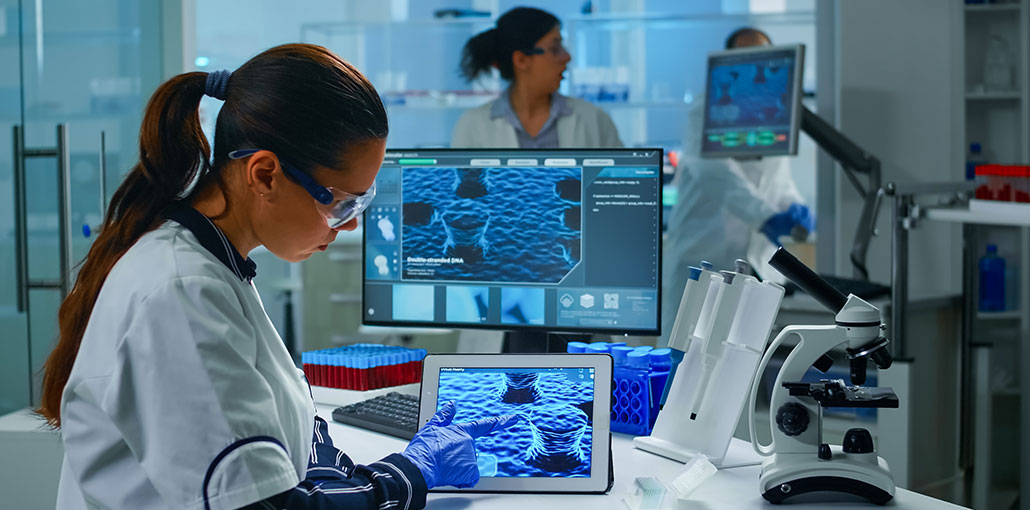Artificial intelligence is still an extremely foreign concept to most individuals, with a mysticism originating from sci-fi media still surrounding it, but the concept is simpler than you think, it is rather its execution that provides hardships for developers.
Robotics also has some mysticism surrounding it as well, but that emotion is culturally dependent. In technologically advanced countries, for example, Japan. The use of robotics in quotidian life is quite popular, though these habits are becoming widespread globally.
Let’s begin by discussing artificial intelligence, or in other terms, AI. Artificial intelligence is within a spectrum of different uses and software, tools, and forms, ranging from a simple search algorithm to autonomous weapons.
Essentially, AI is a tool that is used to integrate information and perform data analysis with which it can create a result to optimize its decision-making. In other words, it is a machine that is able to respond to stimulation and is able to execute responses consistent with the way a human would.
AI is often combined with robotics, and vice-versa, which we will be discussing more in-depth later, but a famous example of such combinations is Hanson Robotics’ Sophia robot, which was a humanoid robot capable of sentience, so it seemed.
Other uses for AI, apart from medicine, include daily life, cybersecurity, transport and vehicles, employee screening and hiring, infrastructure, language translation, manufacturing, public administration, and so much more, so there is no question on whether this technology is a good career path for the future.
How is AI intelligent?
Just like people, AI’s first step into becoming good at something is by learning how to do its job. The jobs in question typically require the expertise of a human to complete, for example, image analysis, decision making, or speech pattern recognition. The key is to keep in mind that AI is simply a smart algorithm.
Also read: Artificial Intelligence In Healthcare: How it is Changing the Industry
To teach and test AI, these computer systems are first taught structured data, meaning it is organized and annotated for the algorithm to recognize. Then when the AI has received enough data points, it is put through a test with inquiries that the examiners already know the answers to ensure accuracy.
The above system is widespread, and the application of such AI in medicine is mostly through clinical decision support and image analysis. This means the software receives an input of data, either numerical or an image, to then land on a probability or a classification for their input, that is a diagnosis.
To give further examples, medical AI can look at CT scans, X-rays, or MRIs and determine the injury of the patient, assist surgery, assist in keeping people healthy (fitness trackers, etc.), assist in precision medicine thanks to the vast amounts of data the software receives, and even drug development and discovery.
To summarize, the reason AI is as useful and smart as it is is thanks to its intentionality, adaptability, and general intelligence.
The intentionality of this software is due to its ability to combine information from various sources to then analyze the information and derive the most effective response to it, and thanks to present advanced technology, it is able to analyze and make decisions in a quick and elaborate manner.
AI’s adaptability comes from all the learning it is able to do since with the added layer of autonomy it is able to analyze the input of information and come to optimal conclusions without any human interference.
The intelligence of AI is closely related to data analytics and its ability to learn as a machine. All that is required is solid, accurate information for the algorithm to derive patterns from to come to a useful answer, meaning we can make AI great only by allowing researchers greater access to data without compromising privacy.
How is AI applied in medicine?
The biggest reason AI is now something we can use in the medical world is thanks to the computational power we can easily access to carry out the system’s tasks. Some examples of clinically accurate AI algorithms even outperformed medical practitioners, namely in image classification tasks, as mentioned earlier.
The Seoul National University Hospital and College of Medicine created an advanced AI algorithm named Deep Learning-based Automatic Detection, or DLAD for short, to view patients’ chest radiographs and determine abnormal cell growth from the images inputted. When the DLAD’s results were compared to human doctors’ analyses, it outperformed 17 out of 18 doctors, proving its accuracy.
AI can also be used to mine a patient’s past health data and medical records, this naturally means that there needs to be easier access to data as well.
Google Health and DeepMind merged to work together on cancer diagnosis using patients’ medical records and AI, and they succeeded in diagnosing breast cancer using it.
The software algorithm ended up outperforming human radiologists by an average of 11.5%, looking promising for developers to continue their work.
AI used in medicine can also be used to accelerate biological data management and drug development. This would prove useful to pharmaceutical development because clinical trials for drugs take too long, sometimes over a decade, and can be very costly. Testing on humans is also ethically and legally a complicated process.
Atomwise is the prime example of a startup trying to fix the issues with pharma development. Their combination of convolutional neural networks and AI used on supercomputers allows the efficacy of medicines. This is also thanks to its massive database of molecular structures.
Their program is able to make predictions on how small protein molecules will bind under their inputted test and will help identify candidates that would be safe for the use of a certain drug.
Such technology can also be used in effective personalized disease treatment through AI-powered virtual assistants. This would allow the software to answer patients’ needs by looking at their medical history, needs, and preferences.
Medical AI can also be used to maintain security by maintaining cybersecurity in hospitals and other medical practices. Unfortunately, cyberattacks are increasing, and it is feasible that the medical sector can be hit as well due to growing tensions on some topics.
How are robotics applied in medicine?
Medical robots may sound terrifying, but they are a great asset to medical practitioners and patients alike. The use of this technology in the medical field is revolutionary to how surgeries, delivering supplies, cleaning, and organizing are performed.
Surgical robots were the first medicinal robotic concept developers would tinker with, and the concept has evolved into a great success. The best example of surgical robots is the da Vinci Surgical System made by Intuitive Surgical.
This robot allows surgeons to control it manually whilst adding a mechanical layer of precision and allowing surgeons to obtain a minimally invasive approach to their work.
Medical robots have advanced from only being in the operating room to being around the hospital to aid medical staff and facilitate patient care. An example of such use was during the COVID-19 pandemic, where hospitals deployed cleaning robots to minimize pathogens, as well as help in preparing rooms for patients.
Also read: 6 Ways Technology Will Make A Positive Impact In Healthcare
How do AI and robotics work together in healthcare?
This technology is by all means not meant to replace healthcare workers since they are truly the backbone of society, it is rather meant to facilitate their jobs and reduce human risk.
Some examples of the combination of AI and robotics would be robots that are able to identify medicine thanks to the addition of AI, reducing the time it takes to get proper identification, match the medicine, and distribute it to the patient.
The addition of artificial intelligence can also be used in cleaning and preparing robots, where they can identify which room to clean when based on input data. This means contact between humans would be minimized, reducing the spread of pathogens.
Surgical AI is where there are ethical and technological limitations. AI is still too unpredictable to have full surgical autonomy, thus remaining a surgical assist, and that will probably remain that way for a while if not forever.
What limitations does AI have?
The efficacy of AI depends on whether the correct question is asked of it and whether it is provided the correct inputs to perform the expected tasks.
The main concern with the technology is its interpretability. In other words, the computer will not tell you how or why it has come to the conclusion it has come to.
This means the accountability and safety of the conclusions these algorithms come to can have implications, thus why they aren’t being used in those areas of medicine where they could prove useful. This is also why self-driving or autonomous vehicles are also postponed.
All these concerns push data scientists to further research and improve the interpretability of these systems, so all we can do is wait and see what new revelations are to come.










Leave a comment